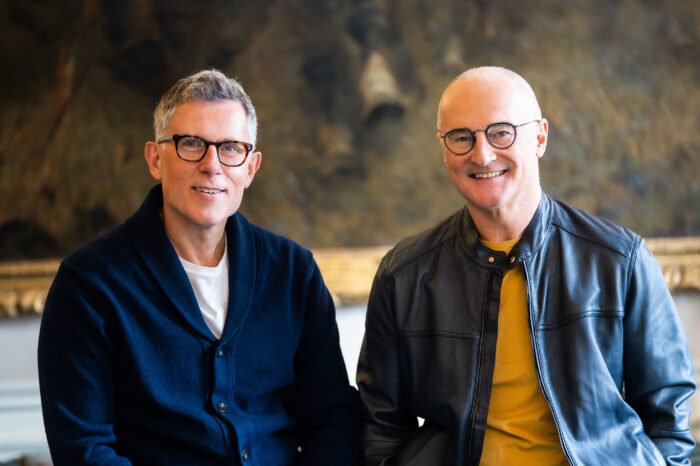People before profit will boost your bottom line

People should always come before profit, because they are the ultimate source of it argues Dominic Houlder, co-author and adjunct professor in Strategic and Entrepreneurial Management at London Business School.
The strategic logic is clear. Making money requires a strong competitive position in a market – and competitive strength comes from owning resources that drive value and which are also hard for others to copy, substitute or simply buy off the shelf. A list of the resources that qualify against those criteria will include brands, intellectual property, alliances, processes and reputation: all of which are embodied people, with their skills, their energy and how they are being brought together by you as a leader.
How to adapt so as not to die
While the logic is impeccable, a hard-pressed manager wrestling to save her organisation in a time of crisis might well look to dismiss it as a classic business school textbook answer. In a time of crisis, it is obvious that tough choices must be made to ensure survival. These will include securing credit lines, drawing in the accounts receivable and cutting cost. And typically, the most obvious costs to cut quickly are people costs.
At the same time as ensuring survival, we do however need to look beyond the crisis. This is not about weathering the storm and returning to some hoped for normality, for the current pandemic and its consequences are highly and lastingly disruptive across almost all sectors. The most dangerous point in a crisis is as it starts to ebb. In the depths of a crisis organisations tend to be faced with similar survival challenges and adopt similar strategies. But once markets and supply chains start to reactivate polarisation typically begins, with a widening gap between the winners and losers in the same sectors. And that gap will be explained by those who prepared for recovery and new opportunities by securing their sources of competitive advantage: their people.
You might find interesting: How to build an A Team
The power of fairness and equality
This will be where the toughest choices arise because it will not be possible to treat people equally. In a recent discussion with the leadership team of an organisation trying to weave its way through the twists and turns of the pandemic, the CFO announced that 20% cuts in people costs were essential. The financial case was completely compelling. He went on to emphasise the need for speed. In his view, the 20% cuts would be spread equally across all functions and business lines: there was no time to waste on debate and horse trading. Each group would simply be required to reduce their 2020 budget cost line for people by 20%. Other members of the leadership team began to nod in agreement. This was only fair. Who could really complain?
But fortunately, one member of the executive committee pointed out that apparent unfairness was critical recovery. She went on to bolster her case by volunteering to take heavier cuts in her area of responsibility than elsewhere in the organisation. The argument was precisely that some resources are more critical for competitive advantage than others: in a time of crisis these can be seen as the recovery anchors on which the organisation’s future bottom line depends. This was a turning point in the meeting, as it became clear that some areas in the organisation needed additional budget in order to secure the future, whilst others could contract with little or no irremediable damage.
As the debate went on, the focus on recovery anchors produced some surprising results. Some key contractors and part-time workers would need to be retained even at the expense of cutting core employees. Recovery anchors included critical suppliers and customers that would need to be kept in being even as the organisation’s own people were being let go. Asking who is essential for our future produced answers that cut through conventional ideas of status importance.
Leadership is doing the right things
Many individual contributors – rather than their managers – stood out as anchors for recovery; in other cases, those who commanded networks of knowledge and trust that were essential for the future did not necessarily correspond to senior hierarchical roles. Here is an echo of what we have seen across the world as low-level frontline workers in health services, or manning supermarket checkout tills have become the pandemic’s heroes. Previously unquestioned assumptions about who matters most are being overturned.
“Leaders should not be afraid to make the most of the capital markets’ reduced expectations of quarterly earnings and dividends to ensure that their organisations emerge from the crisis in a position of strength”
So, the leaders of organisations will need to discriminate in ways that may seem harsh as well as unconventional. That requires an extremely high level of trust within and beyond the organisation that these tough choices are not simply being made to protect the short-term bottom line. Sacrifice in the name of survival and longer- term recovery is understandable as doing the right thing, but immediate self-interest – such as the protection of profit related senior bonuses – are not. And leaders should not be afraid to make the most of the capital markets’ reduced expectations of quarterly earnings and dividends to ensure that their organisations emerge from the crisis in a position of strength.
There was a famous cartoon, current in the years after the First World War. It pictured a father with a child on his knee, another playing with toys at his feet. The caption was: “so what did you do in the Great War, daddy?”. We should imagine similar cartoon being drawn in a few years’ time: “so what did you do with your people in the pandemic, mummy?”.




